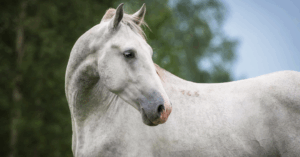
Gastro Pellet: Stomach Well-being Starts in the Mind
Anyone who spends every day around horses knows it well:…
Feed and products in 25kg bags excluded
Bank transfer | Paypal | Credit cards

It’s spring at last! After a long, dark winter, in this “in-between” season, horses and riders can finally catch their breath, enjoying the days that are getting longer and the temperatures that are getting milder. Just like every time the seasons change, spring also presents a few “pitfalls” and requires us to take a few precautions for our four-legged friends.

One of the main indicators of the approaching spring is moulting, a physiological process during which horses (especially those that have not been sheared during the winter) shed their long, thick winter coat, replacing it with a finer and shorter one. It is a natural process that is fairly slow and gradual and as we all know, it causes a great amount of itching and sweating.
How can we help our horses? By grooming them every day, we can speed up moulting and by supplementing their diet in the right measure, we can counteract any electrolyte imbalances brought about by excessive sweating when they work. As soon as the weather permits, you can also give them a nice wash using a special shampoo.
Remember to favour natural products, so as not to upset the natural balance of the horse’s skin, and when choosing food supplements, always seek expert advice.
Gnats, flies, horseflies and last but not least… mosquitoes. With the exponential rise in temperatures (and let’s not forget global warming, in addition to the change of seasons), every year we witness the ever-increasing arrival of all kinds of insects. They stalk our horses relentlessly, often resulting in misery for those in the saddle too.

Photo of hermaion: https://www.pexels.com/it-it/foto/animale-marrone-testa-insetti-4274821/
For horses that suffer from RSD (Recurrent Summer Dermatitis) or equine dermatitis, spring and summer really are a nightmare. However, even for horses that don’t suffer from this pathology and “simply” find them annoying and itchy, insects are a problem too. For more sensitive horses they can cause a great deal of stress, irritability and even weight loss; while in horses with more delicate skin, stings can turn into “wheals” (even quite large ones).
There are no miraculous potions, but there are products on the market that can help us, giving our horses a break in what is, to say the least, a one-sided battle. In this case too, we recommend sprays, gels and roll-ons made using natural substances, such as citronella, geranium and cedar essential oil. In the case of RSD, it is instead important to use products, such as sprays for external use, and supplements specifically designed to combat this disease.
Finally, ear muffs and fly nets will help to protect delicate areas, such as the ears and eyes.
Spring is a time of rebirth and time for the first grass to sprout and we “horse lovers” look forward to taking our horses out to graze after the long winter, but beware! An excessive amount of freshly sprouted grass can lead to digestive problems, especially if the horse comes from winter management that has denied it access to the paddocks for a long time.

Spring grass is indeed very tasty, but it is also very rich in protein and sugars, so if consumed in large quantities it can lead to diarrhoea and, in more severe cases, colic. Saying this, we do not want to forbid relaxing grazing with your horse, we just recommend you approach it gradually and without overdoing it the first few times you head out.
These are just some of the precautions you can take when the seasons change. Remember to always follow the advice of a vet and an experienced nutritionist. After that, all you have to do is enjoy the warm weather.
Hope you all enjoy your rides!

Anyone who spends every day around horses knows it well:…
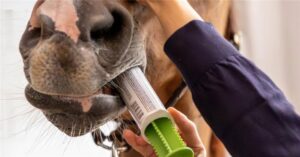
Intestinal parasites are a common and often underestimated problem in…
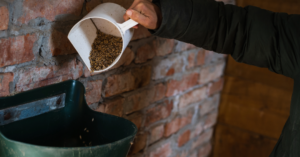
As September approaches, the quality and nutritional composition of pastures…
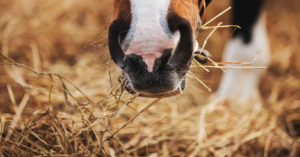
As September approaches, the quality and nutritional composition of pastures…
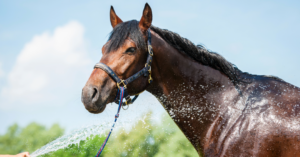
With the arrival of warmer weather, the competition calendar gets…

The importance Assessing your horse’s physical condition and determining whether…